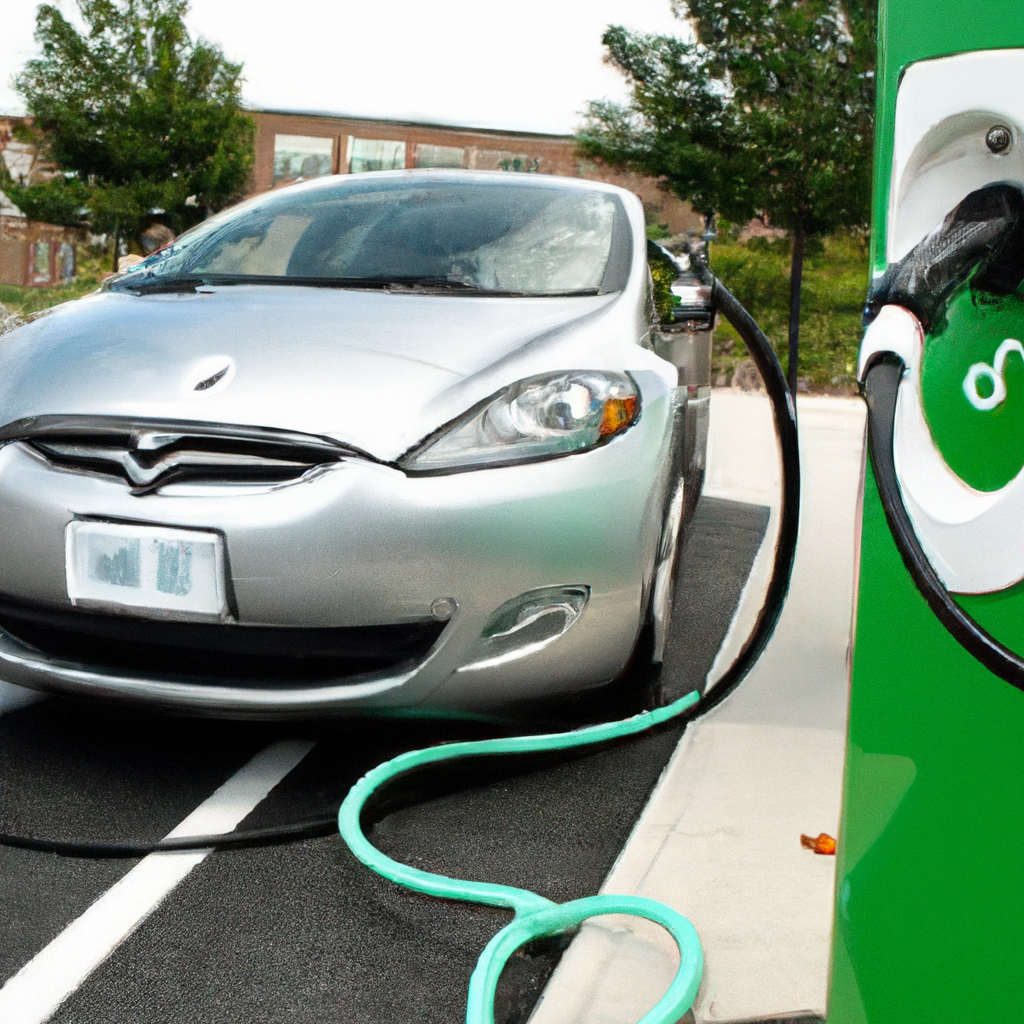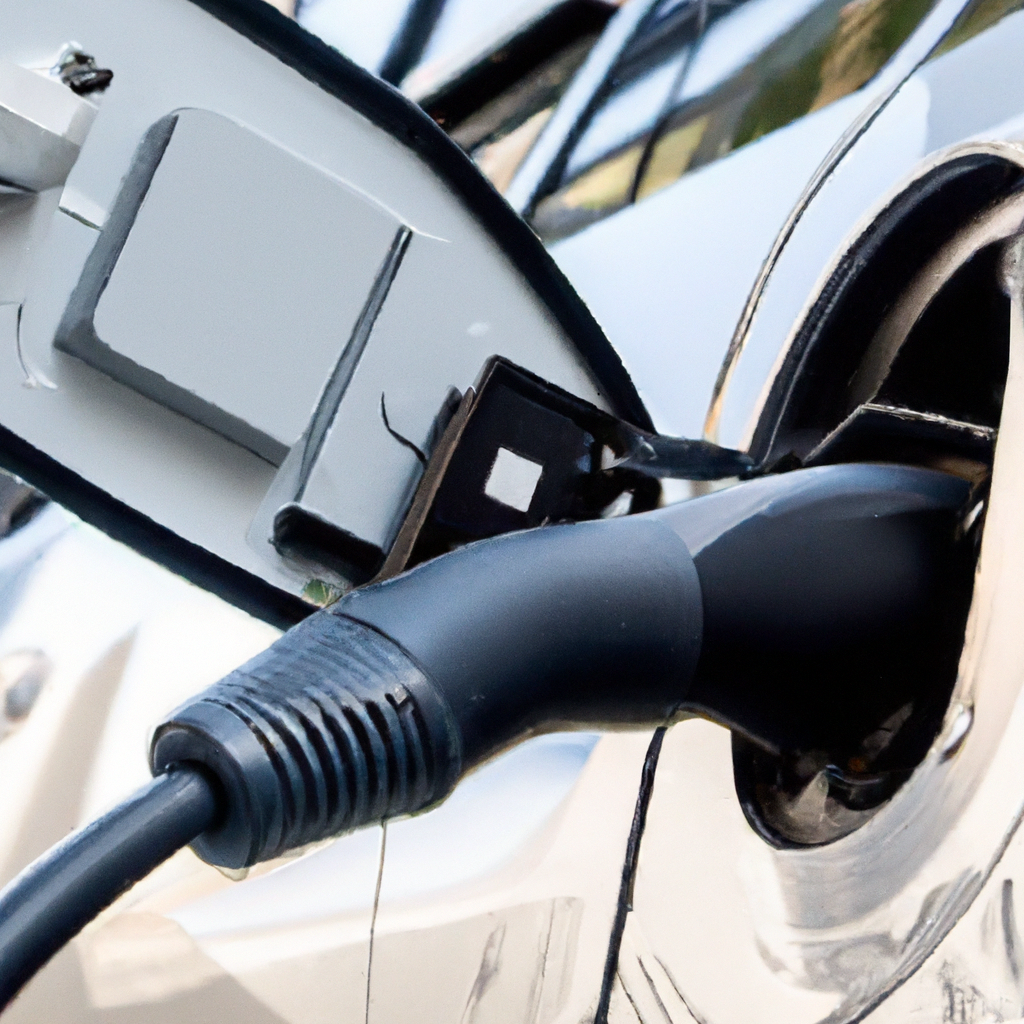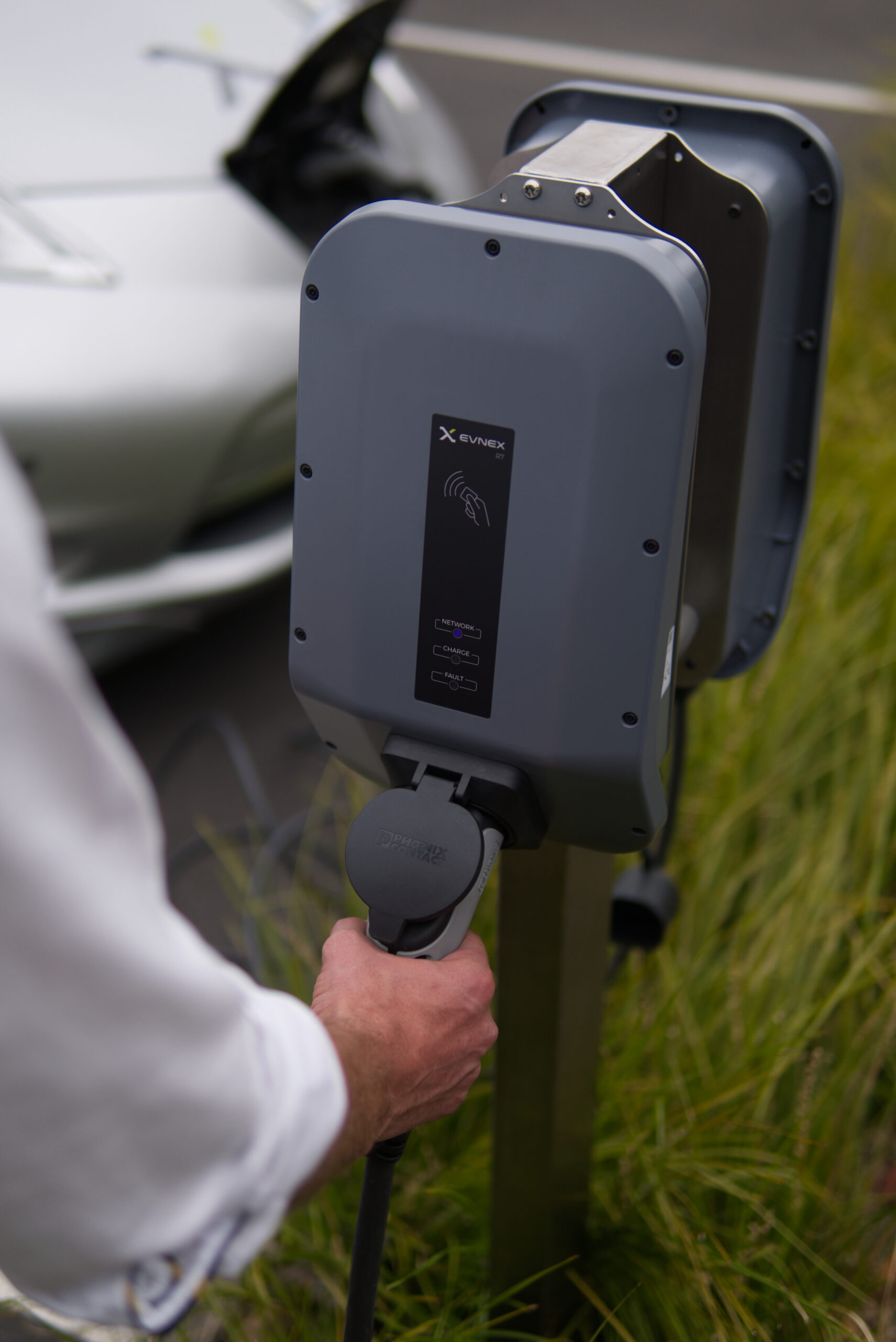Home EV Charging Stations: Convenience And Cost Savings
September 24, 2023 | by Jacob Kang
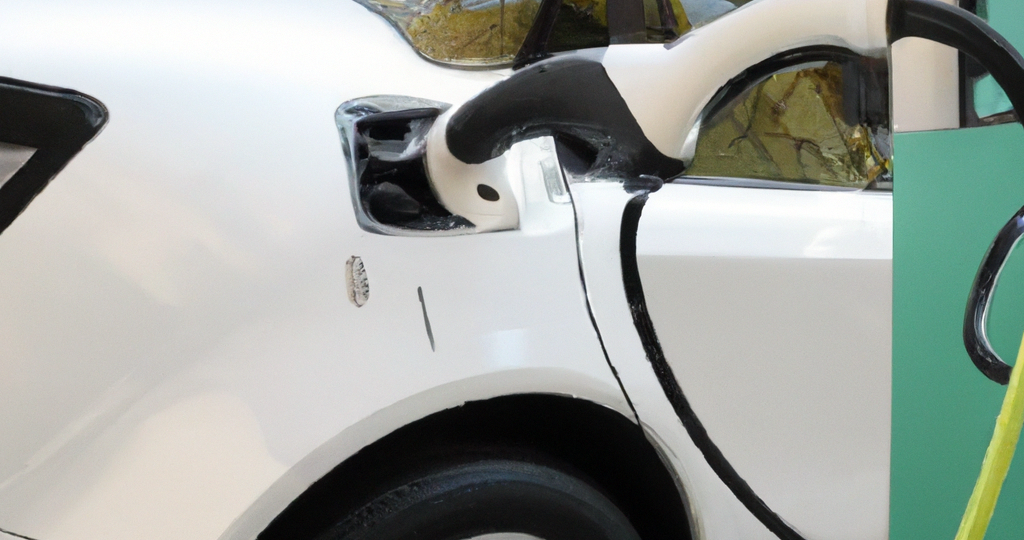
Imagine never having to worry about finding a charging station for your electric vehicle (EV) again. With a home EV charging station, you can conveniently charge your vehicle from the comfort of your own garage or driveway. Not only does this provide you with the ultimate convenience, but it also offers significant cost savings in the long run. In this article, we will explore the benefits of home EV charging stations and how they can enhance your EV ownership experience. From the ease of use to the potential savings on fuel costs, get ready to discover why investing in a home EV charging station is a game-changer for EV owners.
1. What are Home EV Charging Stations?
Home EV charging stations are devices that allow you to charge your electric vehicle (EV) at home. These stations provide a convenient and cost-effective way to keep your vehicle powered up, eliminating the need to rely solely on public charging infrastructure. With a home EV charging station, you can easily plug in your EV and charge it overnight or whenever it is most convenient for you.
1.1 Benefits of Home EV Charging Stations
There are several benefits to having a home EV charging station. First and foremost, it provides the convenience of charging your vehicle at home, eliminating the need to visit public charging stations. This can save you time and make your daily charging routine more seamless.
Having a home charging station also means that you have control over when and how you charge your EV. You can choose to charge it overnight when electricity rates are typically lower, helping you save money on your charging costs. Additionally, you won’t have to worry about waiting for an available charging spot or queuing behind other EV owners.
1.2 Types of Home EV Charging Stations
There are two main types of home EV charging stations: Level 1 and Level 2.
Level 1 charging stations use a standard 120-volt outlet and provide a charging rate of around 3-5 miles of range per hour. This type of charging station is suitable for EV owners who have ample time to charge their vehicles, as it takes longer to fully charge compared to Level 2 stations. Level 1 charging stations are typically less expensive and can be easily installed without any special electrical upgrades.
On the other hand, Level 2 charging stations require a 240-volt outlet and provide a faster charging rate of around 25-30 miles of range per hour. This type of charging station is ideal for EV owners who need to charge their vehicles more quickly, such as those with longer daily commutes or multiple EVs in the household. A Level 2 charging station requires professional installation and may involve electrical upgrades to accommodate the higher voltage.
2. Convenience of Home EV Charging Stations
2.1 Charging at Your Own Convenience
One of the key advantages of having a home EV charging station is the ability to charge your vehicle at your own convenience. Instead of relying on public charging infrastructure, you can simply plug in your EV whenever it is convenient for you. Whether you need to charge overnight, during the day, or even on weekends, a home charging station gives you the flexibility to customize your charging routine according to your needs.
2.2 No Need to Queue or Wait
With a home EV charging station, you can say goodbye to the hassles of waiting in line or searching for an available charging spot. Public charging stations can sometimes be crowded, especially during peak hours, which can lead to long waiting times. By having a dedicated charging station at home, you can avoid these inconveniences and have peace of mind knowing that your vehicle will always be ready to go.
2.3 Charging While You Sleep
One of the most convenient aspects of home EV charging stations is the ability to charge your vehicle while you sleep. By plugging in your EV before going to bed, you can wake up to a fully charged battery in the morning. This means you can start your day with a full tank of electricity, ensuring that you have enough range to reach your destination and any unplanned stops along the way.
2.4 No Extra Trips to the Charging Station
Another advantage of home EV charging stations is the elimination of extra trips to the charging station. With a dedicated charging station at home, you won’t have to make detours or expend additional time and energy to find and use public charging infrastructure. You can simply park your EV in your driveway or garage and charge it whenever needed. This convenience is especially beneficial during inclement weather or when you have a busy schedule.

This image is property of images.pexels.com.
3. Cost Savings with Home EV Charging Stations
3.1 Lower Cost Per Kilometer
Home EV charging stations can lead to significant cost savings when compared to relying solely on public charging stations. On average, charging an EV at home can be up to four times cheaper per kilometer compared to using public charging infrastructure. This is because home electricity rates are typically lower than the per-kilowatt-hour rates offered at public charging stations. By taking advantage of this cost differential, you can reduce your overall fueling expenses and save money in the long run.
3.2 Savings on Electricity Costs
In addition to lower cost-per-kilometer savings, home EV charging stations also offer the opportunity to save on overall electricity costs. Many utility companies offer special electricity rates for EV owners, such as time-of-use pricing or discounted rates during off-peak hours. By charging your EV during these low-cost periods, you can take advantage of cheaper electricity and minimize your monthly utility bills.
3.3 Tax Incentives and Rebates
Another aspect of cost savings with home EV charging stations is the availability of tax incentives and rebates. Depending on your location, you may qualify for federal, state, or local incentives that can help offset the cost of purchasing and installing a home charging station. These incentives can range from tax credits to rebates, making it more affordable to invest in the necessary equipment and installation services. It’s important to research and understand the specific incentives available in your area to maximize your potential savings.
4. Installation and Requirements for Home EV Charging Stations
4.1 Electrical Capacity and Panel Upgrades
Installing a home EV charging station requires assessing your electrical capacity and potentially making upgrades to your electrical panel. Level 1 charging stations typically have lower power requirements and can be plugged into a standard 120-volt outlet without any upgrades. However, Level 2 charging stations generally require a 240-volt outlet and may need a higher electrical capacity to accommodate the increased power demand.
If your electrical panel does not have sufficient capacity, you may need to upgrade it to support the charging station’s power requirements. This may involve hiring a licensed electrician who can assess your current electrical setup and make the necessary recommendations and installations. It’s essential to ensure that your electrical system can handle the additional load to prevent any potential issues or safety hazards.
4.2 Choosing the Right Charging Station
When selecting a home EV charging station, it’s important to choose one that is compatible with your EV model and meets your charging needs. Consider factors such as the charging rate, cable length, ease of use, and any additional features that may be important to you. Research different charging station brands and models, read reviews, and compare specifications to make an informed decision.
You may also want to consider purchasing a charging station that is Wi-Fi-enabled or compatible with mobile apps. These features can provide added convenience by allowing you to monitor your charging status remotely, schedule charging sessions, and receive notifications when your EV is fully charged.
4.3 Professional Installation
Proper installation is crucial to ensure the safety and functionality of your home EV charging station. It is highly recommended to hire a professional electrician who specializes in EV charging station installations. They have the knowledge and expertise to properly install and configure the charging station, ensuring compliance with electrical codes and regulations.
Professional installation typically involves tasks such as mounting and wiring the charging station, connecting it to your electrical panel, and testing its functionality. By entrusting the installation to a qualified professional, you can have peace of mind knowing that your charging station is installed correctly and ready to use.

This image is property of images.pexels.com.
5. Compatibility with Different EV Models
5.1 Charging Speeds and Compatibility
Home EV charging stations are designed to be compatible with a wide range of EV models. However, it’s important to consider the charging speeds supported by your specific charging station and how it aligns with your EV’s capabilities. Different EV models have varying maximum charging rates, and your charging station should be able to accommodate your EV’s requirements.
For example, if your EV is capable of faster charging speeds, it’s advisable to invest in a Level 2 charging station that can provide the necessary power output. On the other hand, if your EV has a lower charging rate, a Level 1 charging station may be sufficient. Understanding the charging capabilities of your EV and ensuring compatibility with your charging station will help optimize the charging process and minimize charging times.
5.2 Adaptive Charging Features
Some home EV charging stations come equipped with adaptive charging features that optimize charging based on the specific needs of your EV. These features take into account factors such as battery health, temperature, and other conditions to determine the optimal charging rate and duration. Adaptive charging can help prolong the lifespan of your EV’s battery and ensure efficient charging performance.
When choosing a home charging station, consider whether it offers adaptive charging features and how they align with your EV’s requirements. This can help enhance the charging experience while ensuring the longevity and efficiency of your EV’s battery.
6. User-Friendly Features of Home EV Charging Stations
6.1 Mobile Apps and Remote Controls
Many home EV charging stations come with mobile apps and remote controls that enhance the user experience. These features allow you to monitor and control your charging station effortlessly through your smartphone or other devices. With a mobile app or remote control, you can start or stop charging sessions, set charging schedules, and receive real-time notifications about your charging status.
These user-friendly features provide greater convenience by allowing you to manage your EV’s charging remotely, even when you are away from home. They enable you to optimize your charging routine, track your energy usage, and seamlessly integrate charging into your daily life.
6.2 Charging Schedules and Timers
Home EV charging stations often offer the flexibility to set charging schedules and timers. This allows you to take advantage of time-of-use electricity rates or simply automate your charging routine. You can program your charging station to start and stop charging at specific times, ensuring that your vehicle is ready when you need it without wasting energy or incurring unnecessary costs.
By leveraging charging schedules and timers, you can adapt your charging routine to your lifestyle and preferences. For example, you can schedule your EV to be fully charged just before you typically leave for work in the morning, ensuring that you always have enough range for your daily commute.
6.3 Integrated Energy Management
Some home EV charging stations feature integrated energy management capabilities, allowing you to optimize your overall energy usage and reduce your environmental footprint. These stations can take advantage of renewable energy sources, such as solar power, to charge your EV. By utilizing clean energy from sources like solar panels, you can further reduce your carbon emissions and contribute to a greener future.
Integration with energy management systems also enables advanced energy monitoring and reporting. You can track your total energy consumption, analyze charging patterns, and make informed decisions about energy usage and efficiency. This level of insight can help you identify opportunities to further optimize your charging habits and reduce your energy costs.

This image is property of images.pexels.com.
7. Safety Considerations for Home EV Charging Stations
7.1 Ground Fault Protection
Safety is a top priority when it comes to home EV charging stations. These devices incorporate various safety features to ensure the protection of both the user and the electrical system. One foundational safety feature is ground fault protection.
Ground fault protection systems continuously monitor the electrical circuit and quickly shut off power if they detect a fault or leakage to ground. This helps prevent electric shocks and potential electrical hazards. Ground fault protection is a crucial safety measure that should be integrated into any home charging station installation.
7.2 Surge Protection
Surge protection is another essential safety consideration. Electrical surges, such as those caused by lightning strikes or power grid fluctuations, can damage sensitive electronic components, including those in your EV charging station. Surge protection devices are designed to divert excessive voltage away from your charging station, preventing damage and potential safety issues.
When installing a home EV charging station, it is recommended to include surge protection devices to safeguard both your charging equipment and your home’s electrical system. Consult with a professional electrician to ensure proper surge protection measures are in place during the installation process.
7.3 Fire Safety Precautions
Fire safety is a critical aspect of home EV charging station installations. While EV fires are rare, it is important to take precautions to minimize the risk. Ensure that your charging station and electrical system comply with all applicable electrical codes and regulations to reduce any potential fire hazards.
Additionally, consider installing a fire extinguisher in close proximity to your charging station and familiarize yourself with its proper use. Having this precautionary measure readily available can help mitigate any fire-related incidents and ensure the safety of your home and EV.
8. Maintenance and Longevity of Home EV Charging Stations
8.1 Regular Cleaning and Inspection
Maintaining your home EV charging station is essential for ensuring its longevity and optimal performance. Regular cleaning and inspection can help prevent dust buildup, debris obstruction, or any other issues that may impact the charging station’s efficiency.
Clean the charging station and its components periodically, following the manufacturer’s recommendations. Inspect the cables, plugs, and connectors for any signs of wear or damage. If you encounter any issues, consult with a professional electrician or the charging station manufacturer for guidance on maintenance, repair, or replacement.
8.2 Software Updates and Upgrades
Like any technology, home EV charging stations may require periodic software updates and upgrades to maintain compatibility, improve performance, and address any security vulnerabilities. Stay informed about new firmware releases or software updates provided by the manufacturer, and ensure you follow the necessary steps to keep your charging station up to date.
Regularly checking for updates and implementing them promptly will help ensure that your charging station remains reliable, secure, and compatible with the latest EV models and charging technologies.
8.3 Warranty and Technical Support
When purchasing a home EV charging station, it is prudent to choose a reputable manufacturer that offers a warranty and reliable technical support. A warranty provides an assurance of quality and protects you against manufacturing defects or malfunctions. Familiarize yourself with the warranty terms and conditions, including any registration requirements or restrictions.
In addition to a warranty, reliable technical support is crucial for any assistance you may need, whether during the installation process, troubleshooting, or general inquiries. Choosing a manufacturer that offers excellent customer service and technical support ensures a smooth experience and peace of mind throughout the lifespan of your charging station.

9. Integrated Energy Systems and Home EV Charging Stations
9.1 Energy Storage Integration
Home EV charging stations can be integrated with energy storage systems, such as batteries, to create a more comprehensive and flexible energy management solution. Integration with energy storage allows excess energy generated from renewable sources, such as solar panels, to be stored and used to charge your EV later.
By harnessing the power of energy storage, you can optimize your use of renewable energy and reduce reliance on the grid. This not only enhances the sustainability of your charging process but also provides backup power capabilities during grid outages or peak demand periods.
9.2 Solar PV Integration
If you have a solar photovoltaic (PV) system installed at your home, you can further enhance the sustainability and cost-effectiveness of your home EV charging station. By connecting your charging station to your solar PV system, you can directly charge your EV with clean, renewable energy generated from the sun.
Solar PV integration allows you to take advantage of free energy from the sun, reducing your reliance on the grid and minimizing your carbon footprint. It also provides a stable and predictable energy source, ensuring a consistent supply of power for your EV charging needs.
10. Future Outlook and Trends for Home EV Charging Stations
10.1 Increasing Market Demand
As the popularity of electric vehicles continues to rise, the demand for home EV charging stations is also expected to increase. With more and more individuals transitioning to EVs, the convenience and cost savings offered by home charging stations become increasingly attractive. The growing market demand is likely to drive further advancements in charging technology, affordability, and available features.
10.2 Advancements in Charging Technology
The future of home EV charging stations holds exciting possibilities for advancements in charging technology. One area of focus is the development of faster and more efficient charging solutions. Improved charging speeds and innovative charging protocols can significantly reduce the time required to charge an EV, making electric driving even more convenient and accessible.
Furthermore, ongoing research and development efforts are aimed at enhancing interoperability between charging stations and EVs. Standardization of charging connectors, communication protocols, and interoperability platforms can simplify the charging process and ensure seamless compatibility across different EV makes and models.
Overall, the future trends for home EV charging stations point towards greater convenience, increased charging speeds, enhanced energy management, and improved integration with renewable energy sources. As technology continues to progress, home charging stations will play a pivotal role in supporting the widespread adoption of electric vehicles and driving a greener transportation future.
In conclusion, home EV charging stations offer significant convenience and cost savings for electric vehicle owners. They allow you to charge your vehicle at your own convenience, eliminate the need to queue or wait at public charging stations, and provide the flexibility to charge while you sleep. Home charging stations also offer cost savings through lower cost per kilometer, savings on electricity costs, and potential tax incentives and rebates.
Installation and requirements for home EV charging stations include assessing electrical capacity, choosing the right charging station, and professional installation. Compatibility with different EV models should be considered, along with the availability of adaptive charging features. User-friendly features such as mobile apps, charging schedules, and integrated energy management enhance the overall experience.
Safety considerations for home EV charging stations include ground fault protection, surge protection, and fire safety precautions. Regular maintenance, software updates, and access to warranty and technical support are essential for the longevity of charging stations. Integration with energy storage systems and solar PV allows for a more comprehensive and sustainable energy management solution.
The future of home EV charging stations looks promising, with an increasing market demand and advancements in charging technology. As more individuals adopt electric vehicles, the convenience and benefits of home charging stations will continue to drive innovation and contribute to a greener transportation future.
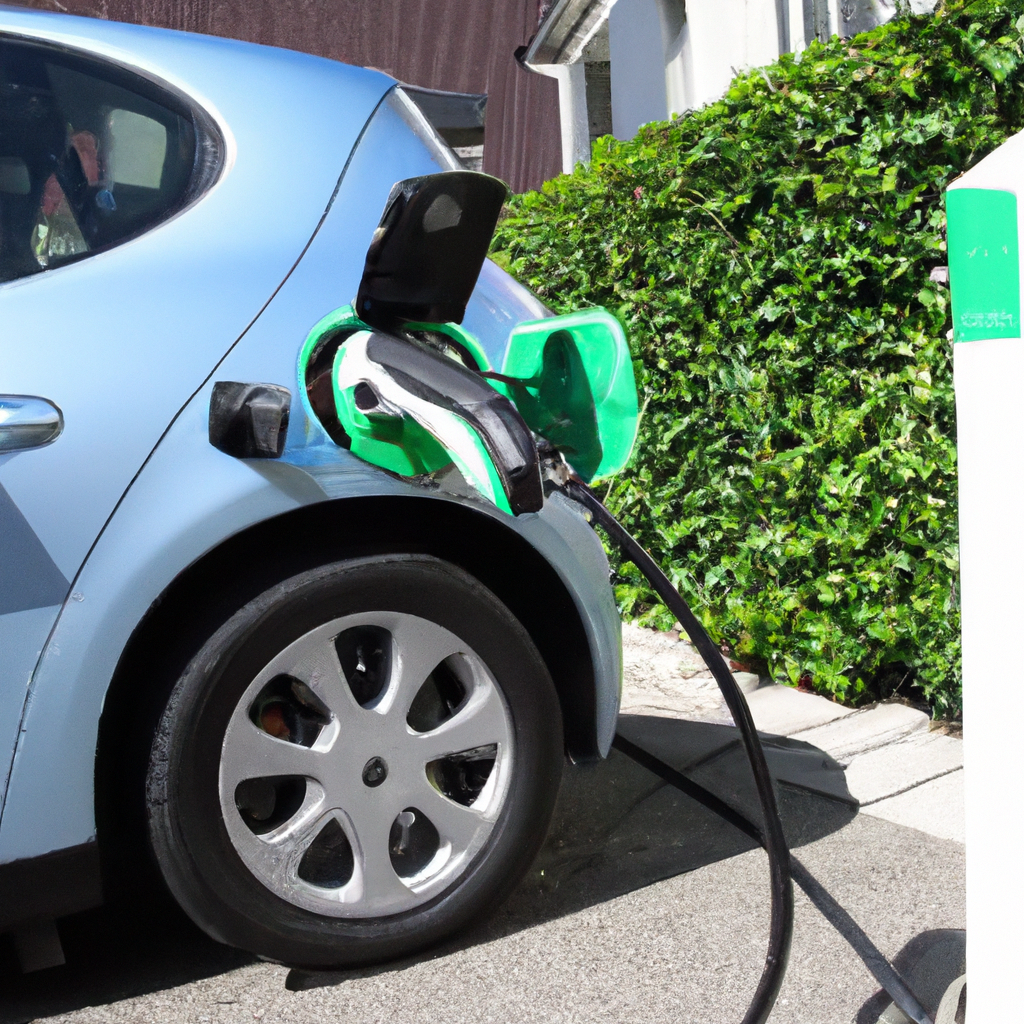
RELATED POSTS
View all
